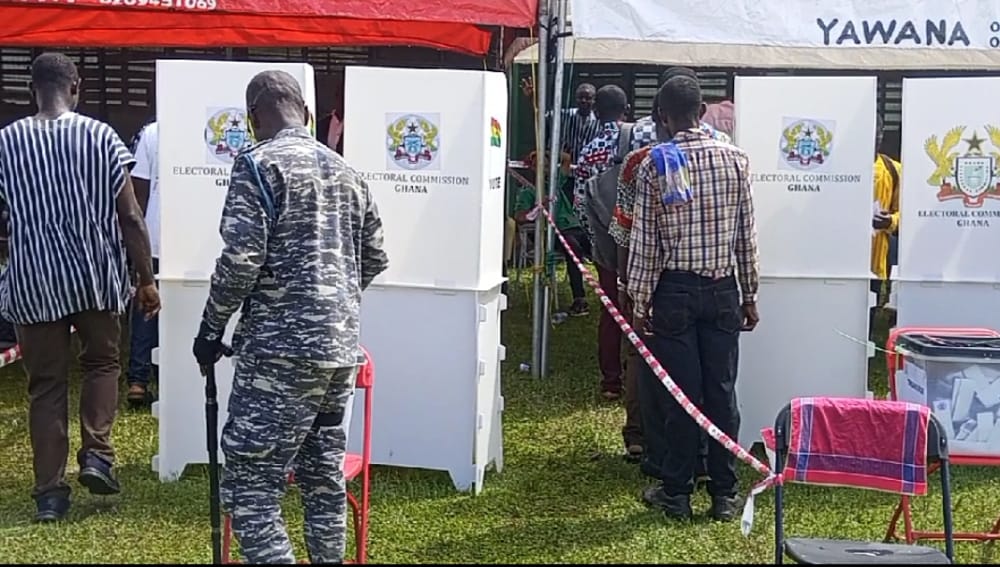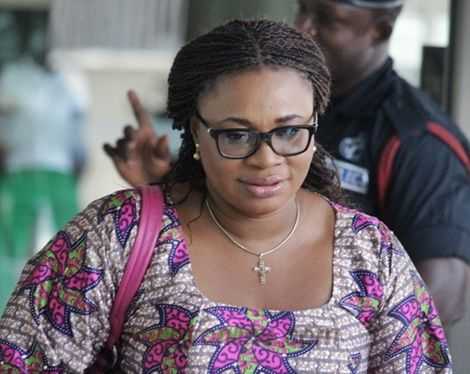
South Koreans are voting in a presidential election, called early after a huge corruption scandal brought down their former leader.
Liberal Moon Jae-in is the clear front-runner with centrist Ahn Cheol-soo his nearest challenger.
The election is being closely watched at a time of economic uncertainty and heightened tensions with North Korea.
Mr Moon wants to increase contact with the North in contrast to ex-leader Park Geun-hye who cut almost all ties.
Observers are expecting a high turnout at the ballot boxes, with numbers boosted by younger voters, as South Koreans choose from 13 candidates.
Polls close at 2000 local time (1100 GMT), with the winner expected to be announced soon after.
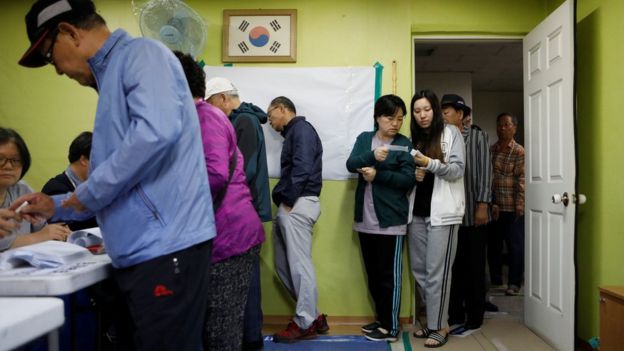
All the candidates are promising to protect the fragile recovery in South Korea’s economy – the fourth largest in Asia – and to bring down youth unemployment, which remains stubbornly high.
There are also promises to rein in perceptions of elitism in South Korean political society and reform the family-run conglomerates – chaebols – which dominate the domestic economy.
But heightened tensions on the Korean peninsula in recent weeks have also made the perennial concern of domestic security a key election concern.
Mr Moon, of the Democratic Party of Korea, has advocated greater dialogue with the North while maintaining pressure and sanctions.
He has been critical of the two previous conservative administrations for failing to stop North Korea’s weapons development.
Both he and Mr Ahn have urged US President Donald Trump to cool his rhetoric towards the North after his administration suggested it could take military action over Pyongyang’s weapons programme.
Conservative candidate Hong Joon-pyo of the Liberty Korea Party however has attacked Mr Moon’s approach, saying on Thursday morning that the election was a “war of regime choices”.
Turnout seems to have been high. More than half of the country’s voters had cast their vote by 13:00 local time, the half-way stage of election day.
South Korea has been energised by a string of events from the confrontation between Washington and Pyongyang over North Korean nuclear weapons to the ousting of the previous president over allegations of corruption.
In Western democracies, there have been hints of disillusion with politics and politicians but that hasn’t been on display here.
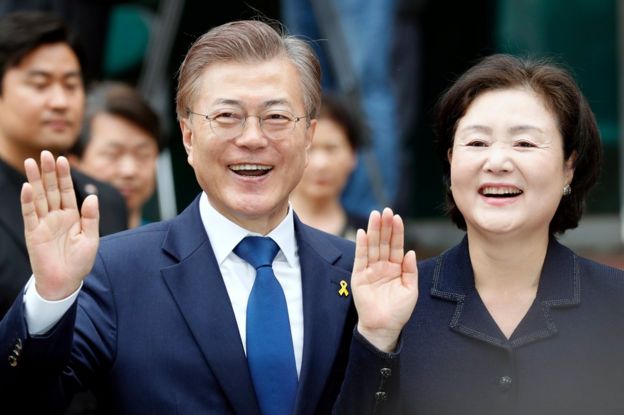
This election has been refreshing in that security at rallies has been lower key than those in the United States, in particular, and in some countries in Europe.
At times, the front-runner, Moon Jae-in, has been in danger of being pulled off the stage by people tugging his hand.
North Korea state media said it favoured a return to an earlier era of communication and co-operation known as the Sunshine policy, seen as an endorsement of Mr Moon who was part of the previous South Korean government which promoted that policy.
Candidates are also promising a break from the past as symbolised by the deeply unpopular Ms Park.
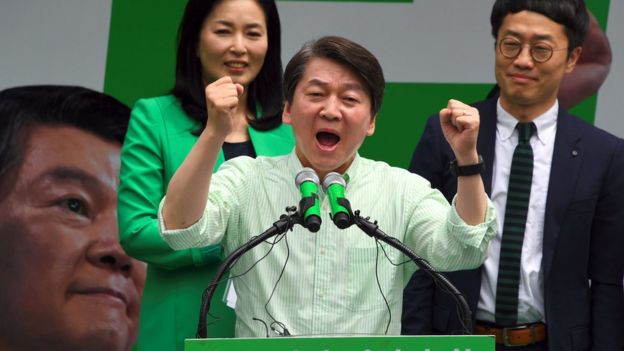
Mr Moon, has called for an “overwhelming victory” as it would help to heal a national divide caused by her impeachment.
“I feel that not only my party and myself but also the people have been more desperate for a change of government,” he told reporters on Tuesday morning after he cast his vote.
In March, Park Geun-hye became the first South Korean president to be removed from power by impeachment.
She denies wrongdoing – although she has repeatedly apologised – and is standing trial on charges of bribery and abuse of power.
Mr Moon narrowly lost to Ms Park in the last presidential election in 2012.
Mr Ahn had also run for the job but dropped out to endorse Mr Moon in an attempt to consolidate votes against Ms Park. He has now positioned himself as an alternative to Mr Moon, promising to be tougher on national security.
“The time for Ahn Cheol-soo is here and the time for Moon Jae-in is slipping away,” he declared in his campaign.
BBC

